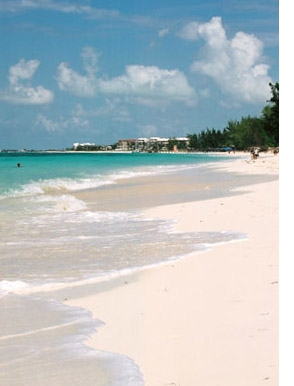
The country is now politically stable and on the fast track for rebirth. Game preserves are being stocked with wildlife. International investment is at an all-time high. And Mozambique leads the world in demining efforts, utilizing the cheap and intelligent African pouched rat to sniff out buried landmines. The rats are too lightweight to explode the mines and they work for bananas.
Separated from the mainland some 10,000 years ago, the Bazaruto Islands were spared from Mozambique’s disasters.
Because of the lack of tourism within the country during this 30-year span, the coral reef is pristine and well-populated with bountiful marine life. The entire archipelago was declared a national park in 1971.
When we arrived on the island, we were ferried to the docks and welcomed to with cool wet towels and a refreshing cocktail.
Once settled in, we headed out to snorkel at “The Aquarium,” a protected section within the two-mile reef, with a stop at Pansy Island, one of only two places in the world where you can find the fragile, highly-prized pansy shell.
The Aquarium more than lives up to its name, filled with parrotfish, grouper, green turtles, giant lobsters, lion fish and more. 
Directly beneath us, the water frothed and teemed with dozens of wild dolphins. Two swam up to take a very close look at us. Knowing that these were not Disney-trained dolphins but wild creatures, it was scary and exhilarating at the same time.
We were also thrilled to see a rare dugong, related to the American manatee. This gentle giant was floating on the surface enjoying a sunbath.
Back at the Marlin Lodge, where we were staying in one of 19 private chalets (all oceanfront and facing the sunset), dinner was unfolding.
On our final day, we got up with the sun for a fishing trip in a traditional dhow sailboat. These graceful, carved wooden vessels have a lurid history of smuggling slaves and ivory to the East in the dead of night. Today, they are tourist attractions offering sunset cruises, fishing and island hopping.
Our last evening was a splendid send-off celebration called a “braii.” It’s a glowing affair with torches, bonfires, candles and hot grills under the stars.
If you wish to purchase this article for your publication, click here to contact the author directly.

